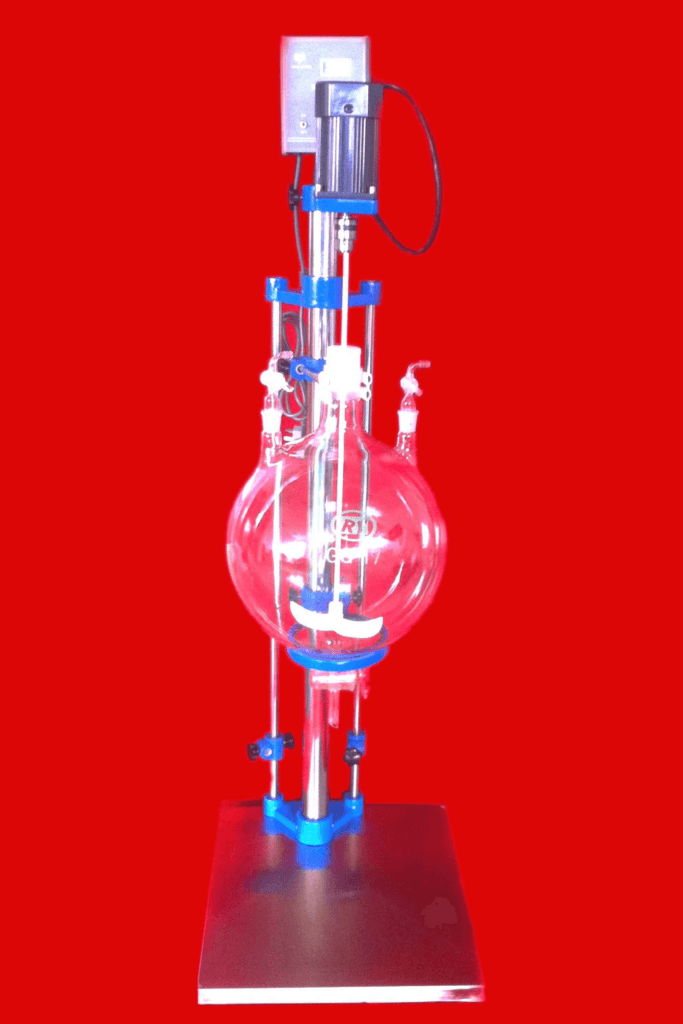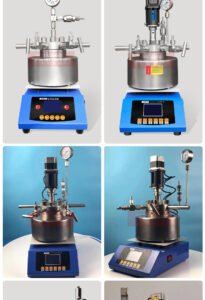Introduction: The Essential Role of Liquid-Liquid Separation Equipment in Industrial Processes
Separation techniques are fundamental in many industrial applications, where the ability to efficiently separate liquids of different densities, compositions, or properties is crucial. Liquid-liquid separation equipment plays a pivotal role in processes ranging from chemical synthesis to wastewater treatment, ensuring purity, enhancing productivity, and reducing waste.
One such piece of equipment that exemplifies the advances in liquid-liquid separation is the AKFY-20L Glass Water-Oil Separator from EquilRxnLab. This separator is designed for industries that require precise and efficient separation of immiscible liquids, such as water and oil, in a variety of applications.
In this article, we explore the key features, benefits, and applications of liquid-liquid separation equipment, focusing on how the AKFY-20L Glass Water-Oil Separator optimizes separation processes across various industries.

Key Features of the AKFY-20L Glass Water-Oil Separator
The AKFY-20L Glass Water-Oil Separator from EquilRxnLab offers advanced features that make it a top choice for liquid-liquid separation tasks. Below, we outline the primary features that set this equipment apart in the field of industrial separation.
Large Glass Capacity and Loading Efficiency
With a glass capacity of 20L, the AKFY-20L can handle significant volumes of liquid mixtures, making it suitable for medium to large-scale separation processes. The loading capacity of the separator is also impressive, accommodating up to 80% of the total capacity, which ensures optimal performance without overloading the equipment.
Variable Speed and Motor Power for Precise Control
The AKFY-20L is equipped with a motor power of 120W, providing sufficient power for effective separation. The speed range of 0-450 rpm offers precise control over the separation process, enabling users to adjust the speed depending on the specific requirements of the liquid mixture. Whether the separation involves water-oil mixtures or other liquid combinations, this flexibility ensures that the system operates efficiently under varying conditions.
PTFE-Coated Stirring Rod for Durability
The stirring rod of the AKFY-20L is made of PTFE-coated stainless steel, offering exceptional resistance to chemical corrosion and ensuring long-lasting durability. PTFE is well-known for its non-stick properties, preventing contaminants from adhering to the surface of the rod and maintaining the integrity of the liquids being separated. This feature makes the AKFY-20L ideal for use in industries dealing with aggressive chemicals or oils.
Enhanced Vacuum Degree for Efficient Separation
The separator’s vacuum degree of 0.098 MPa contributes to a more efficient separation process by reducing the pressure inside the chamber. This enhanced vacuum system ensures that immiscible liquids, such as water and oil, are separated more effectively, resulting in higher purity and yield.
Stainless Steel Frame for Structural Stability
The AKFY-20L is built with a 304 stainless steel frame, which is both durable and resistant to corrosion. For users who require additional protection, an optional PTFE coating is available, further enhancing the equipment’s resistance to chemicals and environmental wear. This construction ensures the separator can withstand the demands of continuous industrial operations.
Benefits of Liquid-Liquid Separation Equipment in Industrial Applications
The use of liquid-liquid separation equipment offers numerous advantages across a range of industries. By improving the efficiency, purity, and scalability of separation processes, these systems provide substantial value to manufacturers and researchers alike.
Increased Separation Efficiency
One of the primary benefits of liquid-liquid separation equipment is its ability to improve separation efficiency. Traditional methods often struggle to effectively separate liquids with similar densities or emulsions. However, equipment like the AKFY-20L Glass Water-Oil Separator offers precise control over the separation process, enabling the efficient isolation of immiscible liquids, even in large volumes.
Cost-Effective Operation and Maintenance
Using liquid-liquid separation equipment reduces the need for manual intervention, which can be time-consuming and labor-intensive. The automated process allows industries to achieve more with fewer resources, ultimately reducing operational costs. Furthermore, the durable materials used in equipment construction, such as PTFE-coated stainless steel and stainless steel, minimize the frequency of maintenance and replacements, contributing to long-term savings.
Environmental and Safety Benefits
Efficient separation of chemicals and liquids is essential for minimizing waste and ensuring that industrial by-products are handled safely. Liquid-liquid separation equipment reduces the risk of environmental contamination by isolating harmful substances from other liquids. This not only improves environmental sustainability but also enhances safety in industrial facilities.
Applications of Liquid-Liquid Separation Equipment
Liquid-liquid separation equipment has wide-ranging applications across multiple industries. Some of the key sectors benefiting from these systems include:
Chemical Industry
In the chemical industry, separating water from organic solvents or other chemicals is often required. Liquid-liquid separators such as the AKFY-20L ensure that these chemicals can be separated efficiently, reducing contamination and ensuring high-quality outputs. The flexibility of this equipment makes it suitable for various chemical separation tasks, whether in large-scale production or laboratory research.
Pharmaceutical Industry
The pharmaceutical industry demands strict purity standards for its products. In the production of pharmaceuticals, removing impurities from liquid formulations is crucial for ensuring the safety and efficacy of the final product. Liquid-liquid separation equipment helps achieve these high standards by effectively separating immiscible liquids, which is essential for producing high-purity drugs and formulations.
Food and Beverage Industry
The food and beverage industry also benefits from efficient separation techniques. For example, separating water from oils or fats in food processing can be a complex task, but liquid-liquid separation equipment makes it possible to carry out this separation quickly and efficiently. This improves both the quality and shelf life of food products while reducing waste.
Environmental Management
In wastewater treatment and environmental management, the separation of oils and chemicals from water is essential for maintaining water quality. Liquid-liquid separation equipment helps eliminate pollutants from wastewater, enabling companies to meet environmental regulations and minimize their ecological footprint.
Choosing the Right Liquid-Liquid Separation Equipment
When selecting liquid-liquid separation equipment, it is essential to consider factors such as:
Separation Capacity
The capacity of the separator should be adequate for the volume of liquids you need to process. The AKFY-20L is designed for medium to large-scale operations, making it an excellent choice for industries with high-volume filtration needs.
Material Compatibility
Ensure that the materials used in the equipment, such as the PTFE-coated stirring rod and 304 stainless steel frame, are compatible with the chemicals and liquids you plan to separate. The right material choice ensures both durability and efficient performance.
Maintenance and Longevity
Opt for equipment that is easy to maintain and built to last. The AKFY-20L features durable components that require minimal maintenance, reducing downtime and improving productivity in the long run.
To learn more about the AKFY-20L Glass Water-Oil Separator and how it can optimize your liquid-liquid separation process, visit the product page.
Stay connected with EquilRxnLab on social media:
For more information, visit our contact page.



